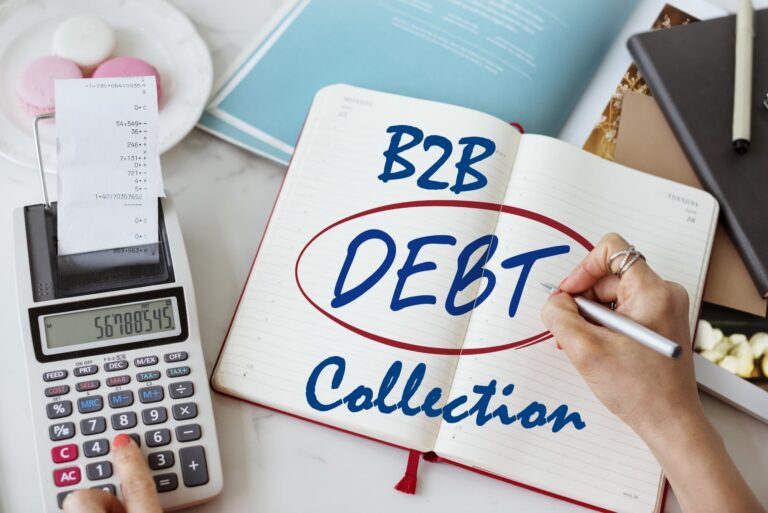Debt Collection in the US , Master your Rights in 2024

Understanding debt collection in the US is essential for protecting consumer rights and ensuring ethical recovery practices. Our comprehensive guide covers everything from the FDCPA and CFPB regulations to practical advice for disputing debts and engaging with collection experts. Brought to you by Expert Planet, this article is your go-to resource for navigating the complexities of debt collection in the US with confidence. Discover your rights and learn how to handle debt collectors legally and effectively.
Key Takeaways
- Debt collection in the US involves recovering money owed by individuals or businesses
- Main laws governing debt collection in the US:
- Fair Debt Collection Practices Act (FDCPA) – federal
- State debt collection laws
- Consumer Financial Protection Bureau (CFPB) rules
- Debt collectors cannot harass or threaten consumers
- Consumers can dispute debts and debt collectors must verify them
- Consumers can sue for FDCPA violations
- Commercial debt collection in the US has fewer consumer protections
- Seeking expert advice can help navigate the complex regulations
Understanding Debt Collection in the United States
Debt collection in the US is a crucial part of the financial ecosystem, ensuring that creditors can recover funds that are rightfully theirs. However, it’s a process that must be conducted with fairness, respect, and within the bounds of the law. In the US, several regulatory bodies ensure that debt collection agencies operate ethically and legally.
Definition and Scope of Debt Collection in the United States
Debt collection is a process that kicks into gear when an individual or a business fails to repay borrowed money. This process can involve phone calls, letters, and even court action if the debt remains unpaid. The entities that carry out this process are known as debt collection agencies.
Debt collection agencies are companies that specialize in recovering debts that are overdue or not being paid. These agencies work in two main ways:
- They either collect debts on behalf of the original creditor (the entity that first lent the money).
- They buy debts from creditors and then try to recover the full amount themselves.
The process of debt collection in the US typically begins with the original creditor. If you owe money on a credit card, for example, the credit card company will first attempt to recover the debt themselves. This could involve sending letters, making phone calls, or setting up a repayment plan. If these attempts are unsuccessful, the creditor may then pass the debt onto a collection agency. Once a debt is in the hands of a collection agency, they will start their own attempts to recover the money. This could involve more letters and phone calls, and in some cases, they may even take court action.
The Role of Debt Collectors United States
Debt collectors in the US play a crucial role in the financial landscape, serving as intermediaries between creditors and debtors. When it comes to managing finances, one common challenge faced by individuals and businesses alike is dealing with debt. In life, debt relationships are types of relationships that occur frequently. However, not always does the debtor fulfill their obligations, and this is where debt collectors come in.
Types of Debts: Consumer vs. Commercial Debts in the United States
Debts can be broadly categorized into consumer debts and commercial debts. Consumer debts are those owed by individuals, typically related to personal, family, or household purposes. These could include credit card debts, personal loans, and mortgages.
On the other hand, commercial debts are those owed by businesses. These could include commercial mortgages, business loans, commercial rent arrears, and long overdue supplier invoices. Falling behind on payments for an extended period can lead to potential repossession, defaulting on installment payments to banks/alternative lenders for over 6 months, accumulating several months or years of unpaid rent to landlords, and not paying suppliers for services/goods after 60-90 days, despite repeated demands.
Key Governance Bodies and Laws in Debt Collection in the US
In the United States, debt collection is governed by a complex set of federal and state laws. Understanding these laws is crucial for both creditors and debtors. In this section, we will delve into the key governance bodies and laws that regulate debt collection in the US, namely the Fair Debt Collection Practices Act (FDCPA), the Consumer Financial Protection Bureau (CFPB), and various state laws and regulations.
Fair Debt Collection Practices Act (FDCPA): Overview and Implications
The Fair Debt Collection Practices Act (FDCPA) is the primary federal law that governs debt collection practices in the US. Enacted in 1978, the FDCPA was designed to eliminate abusive, deceptive, and unfair debt collection practices. It also protects reputable debt collectors from unfair competition and encourages consistent state action to protect consumers from abuses in debt collection.
The FDCPA prohibits debt collection companies from using abusive, unfair, or deceptive practices to collect debts. This includes limitations on debt collectors’ acquisition of location information, prohibitions on harassment or abuse, false or misleading representations, and unfair practices. The Act also creates a procedure for the validation of debts and sets requirements for the sending of required disclosures, including disclosures sent electronically.
Consumer Financial Protection Bureau (CFPB): Role and Impact on Debt Collection
The Consumer Financial Protection Bureau (CFPB) is a U.S. government agency that ensures banks, lenders, and other financial companies treat consumers fairly. The Dodd-Frank Act granted rulemaking authority under the FDCPA to the CFPB and, for entities under its jurisdiction, granted authority to supervise and enforce compliance with the FDCPA.
In November 2021, the CFPB’s Debt Collection Rule became effective. This rule clarifies how debt collectors can communicate with consumers, including what information they’re required to provide at the outset of collection about the debt, consumers’ rights in debt collection, and how consumers can exercise those rights.
State Laws and Regulations: Variations and Enforcement
In addition to federal laws, each state in the US has its own set of laws and regulations governing debt collection. These laws can vary significantly from state to state, adding another layer of complexity to the debt collection process.
Collecting a debt can be more complicated than it may appear, especially with the glut of state and federal regulations impacting the debt collection industry. Organizations should take steps to not only familiarize themselves with the state of the debt but also to review the proposals poised to shake up those regulations in the future.
In conclusion, understanding the key governance bodies and laws in debt collection in the US is crucial for both creditors and debtors. It helps to ensure fair practices, protect consumers, and maintain the integrity of the debt collection process. In the next section, we will delve into the practical implications of these laws and regulations, providing real-life examples and actionable advice for navigating the complex landscape of debt collection in the US.
Commercial Debt Collection in the United States
Commercial debt collection in the US, unlike consumer debt collection, involves the recovery of debts owed by businesses. This process can be more complex due to the larger sums of money involved and the different regulations that apply.
Differences between Consumer and Commercial Debt Collection
Understanding the nuances between consumer and commercial debt collection in the US is essential for businesses and individuals alike. These differences impact the strategies used for debt recovery, the legal frameworks that apply, and the overall approach to managing outstanding debts.
Nature of the Debt
Consumer debts are typically incurred for personal, family, or household purposes. This category includes credit card debts, auto loans, personal loans, and mortgages. These debts are often smaller in scale but more numerous, and they directly impact an individual’s credit score and financial stability.
Commercial debts, on the other hand, are incurred in the course of conducting business. They can range from unpaid invoices for goods or services provided, to business loans and lines of credit. Commercial debts tend to involve larger sums of money and fewer debtors compared to consumer debts. The impact of unpaid commercial debts can be significant, potentially affecting the cash flow and operations of a business
Regulation of Commercial Debt Collection
In the United States, the Uniform Commercial Code (UCC) provides a framework for commercial transactions, including debt collection. The UCC is a comprehensive set of laws governing commercial transactions, including sales of goods, leases, negotiable instruments, bank deposits, and fund transfers. It’s a uniformly adopted state law, meaning it’s been enacted in some form in all 50 states, making it a crucial part of commercial debt collection regulation.
However, the specific regulations and practices can vary from state to state, and businesses and debt collectors need to be aware of these differences. For instance, some states may have stricter rules on the frequency of contact, the time of day when a debtor can be contacted, and the type of communication that can be used.
In addition to the UCC, commercial debt collection is also regulated at the federal level by the Fair Debt Collection Practices Act (FDCPA). This act prohibits debt collectors from using abusive, unfair, or deceptive practices to collect debts. It also provides debtors with a means of disputing and obtaining validation of debt information to ensure the accuracy of the information.
Understanding these regulations is crucial for both businesses and debt collectors. For businesses, it helps to know your rights and what to expect if you are contacted by a debt collection agency. For debt collectors, understanding these laws can help ensure you are operating within the law and treating businesses fairly.
Challenges in Commercial Debt Collection
Collecting commercial debts can be particularly challenging due to several factors:
- Identifying Key Decision-Makers: In a business, the person responsible for paying debts may not be readily accessible. Debt collectors often need to navigate through corporate hierarchies to reach the right individual.
- Negotiating with Businesses: Businesses may have more resources and legal counsel to dispute or negotiate debts, making the collection process more complex.
- Larger Debt Amounts: The sums involved in commercial debts are typically larger, which can lead to more resistance from the debtor and a higher stake in the recovery process.
Best Practices for Commercial Debt Collection
To effectively manage commercial debt collection, businesses should:
- Maintain Accurate Records: Documentation of all transactions and communications is vital for legal protection and successful debt recovery.
- Professional Communication: Always approach debtors professionally to maintain business relationships and avoid legal pitfalls.
- Understand Legal Obligations: Knowledge of relevant laws and regulations is crucial to ensure that collection practices are compliant and ethical.
- Seek Expert Assistance: Engaging with debt collection experts or agencies can provide the necessary expertise and resources for effective debt recovery, especially when dealing with international debts.
While consumer and commercial debt collection share the common goal of recovering owed funds, the approaches and legal frameworks governing them are markedly different.
Businesses must be aware of these differences and adopt appropriate strategies to manage their debt recovery processes effectively. Engaging with professionals who specialize in commercial debt collection can provide valuable support and increase the chances of successful debt recovery.
Free Advice from International Experts
Navigating the complex world of debt collection can be challenging, especially for businesses without a dedicated legal or financial team. That’s where expert advice can be invaluable.
Importance of Expert Advice in Debt Collection
Navigating the complexities of debt collection can be a daunting task for businesses. Understanding the laws and regulations, developing effective strategies, and avoiding potential legal issues requires a level of expertise that many businesses may not possess. This is where expert advice comes into play.
Experts in debt collection can provide valuable insights based on their extensive experience and knowledge. They can help businesses understand the laws governing debt collection, develop a comprehensive strategy, and navigate the process more effectively and efficiently. This can ultimately lead to improved debt recovery and a healthier financial position for the business.
Resources for Free Advice and Consultation
There are several resources available for businesses seeking free advice and consultation on debt collection. These include government websites, non-profit organizations, and online platforms. One such platform is Expert Planet, where businesses can connect with experienced debt collection professionals for a free consultation. These professionals can provide tailored advice and solutions to help businesses navigate the complexities of debt collection.
How to Engage with Debt Collection Experts from the United States
Engaging with debt collection experts can be as simple as scheduling a consultation, discussing your specific situation and challenges, and asking for advice. These experts can provide guidance on a range of issues, from understanding the laws governing debt collection to developing a comprehensive debt collection strategy.
If you’re facing challenges with debt collection, don’t hesitate to seek professional help. Contact a debt collection expert on Expert Planet today. A pool of experienced professionals can provide you with tailored advice and solutions to help you navigate the complexities of debt collection. Don’t let unpaid debts hinder your business growth – reach out to an expert today!
Contact a debt collection expert now: Expert Planet Debt Collection
Conclusion
Understanding debt collection in the US is crucial for both creditors and debtors. It helps ensure fair practices, protect consumers, and maintain the integrity of the debt collection process. Whether you’re a business owner trying to recover a debt, or an individual facing debt collection, knowledge is power. By understanding your rights and responsibilities, and by seeking professional advice when needed, you can navigate the complex landscape of debt collection with confidence.
Remember, when it comes to debt collection in the US, you’re not alone. There are resources and experts available to help. Don’t hesitate to reach out for advice and support. After all, the goal of debt collection is not just to recover debts, but to do so in a way that is fair, ethical, and respectful to all parties involved.
What are the specific steps a debtor should take to dispute a debt under the FDCPA?

Act Quickly: Send a written dispute to the debt collection agency within 30 days of receiving the written notice of the debt.
Use a Template: Consider using a sample dispute letter as a guide. This can help ensure that all necessary information is included.
Provide Evidence: Include any evidence that supports your claim, such as copies of canceled checks or payment confirmations, if available.
Send via Certified Mail: It’s advisable to send your dispute letter via certified mail with a return receipt requested. This provides proof that the collector received your dispute.
Cease Collection: Once the debt collector receives your dispute, they must stop all debt collection activities until they provide you with proof of the debt.
Review Proof: If the debt collector provides proof, review it carefully to decide your next steps.
How does the CFPB’s Debt Collection Rule, effective since November 2021, change the way debt collectors must communicate with consumers?

The CFPB’s Debt Collection Rule clarifies how debt collectors can communicate with consumers. It includes requirements for providing information at the outset of collection about the debt, consumers’ rights in debt collection, and how consumers can exercise those rights. This rule aims to modernize the legal framework for debt collection, taking into account the evolution of communication technologies.
What are the most common challenges debt collectors face when trying to recover commercial debts, and how can they be addressed?

Common challenges in commercial debt collection include:
Identifying Key Decision-Makers: Navigating corporate hierarchies to reach the individual responsible for paying debts can be difficult.
Negotiating with Businesses: Businesses may have legal counsel and resources to dispute or negotiate debts, complicating the collection process.
Larger Debt Amounts: Larger sums can lead to more resistance from the debtor.
To address these challenges, maintaining accurate records, professional communication, understanding legal obligations, and seeking expert assistance are recommended best practices.
How can businesses and individuals access free advice and consultation on debt collection?

Businesses and individuals can access free advice and consultation on debt collection through government websites, non-profit organizations, and online platforms like Expert Planet. These resources can provide tailored advice and solutions to help navigate the complexities of debt collection.
What are the legal remedies available to consumers if a debt collector violates state laws, in addition to the FDCPA?

If a debt collector violates state laws, consumers may have additional legal remedies beyond the FDCPA. This can include suing the debt collector in state court, seeking damages, and potentially receiving compensation for any harm suffered. The specific remedies available will depend on the particular state laws that have been violated. It’s often advisable to consult with a lawyer to understand the full range of legal options available.






